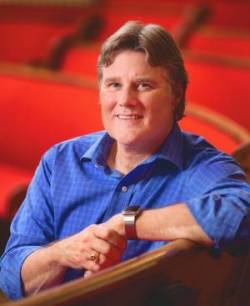Spinning out of control
Is it life or is it me?
By N. Graham Standish
Our increasing access to excess spins us off of our axis, which makes it extremely difficult to have success in spiritual interests.
Years ago I was struck by something the Quaker spiritual writer Thomas Kelly said in response to his hectic pace of life. He said, “Our complex living, we say, is due to the complex world we live in, with its radios and autos, which give us more stimulation per square hour than used to be given per square day to our grandmothers.” He said this in 1941 as part of a speech that, after his death, became part of one the greatest spiritual books of all time, A Testament of Devotion. Imagine what he would say today in the face of all our complexity.
We’ve added television, computers, internet, cell phones (and a million distracting apps with it), Twitter, Shapchat, Skype, globalism, and so much more. How much more complex can life get? My guess is a lot more. Ironically, on my apple watch there’s a built-in app to remind me to slow down and just breathe. I use it all the time. Think about that. I use an app that speeds me up in order to slow me down. There’s something wrong about that!
Kelly never saw the problem of complexity as an external problem. He saw it as an internal one. Here’s what he said: “Complexity of our program cannot be blamed upon complexity of our environment, much as we should like to think so.”
In other words, the world may be getting more complex, but it’s our complicity in that complexity that causes the problem. We allow ourselves to be stuck in a cyclical snare. We give in to the complexity, and in the process we create more complexity, which then entices us to give in to more complexity, which creates more complexity. We create conditions that make it very, very difficult to grow spiritually.
An increasing number of people today say that they are spiritual but not religious, but the reality is that their access to excess makes it really, really difficult for them to be deeply spiritual. Instead, they become people who may feel “spiritual” at times, but whose spirits are minimal. They don’t really stretch. They don’t really grow. They’re not centered enough to do either.
A deep spirituality requires centering practices and attitudes that open people to the divine. Nurturing them requires time spent in prayer, study, reflection, contemplation, awareness, worship, and community.
Community is especially difficult in the context of today’s “spiritual but not religious” because they see spiritual growth as primarily individual, while all the resources they use to become more spiritually enlightened arise out of traditions that emphasize community. Still, I understand their plight since many of our churches have become religious but not spiritual.
Regardless of whether we are merely spiritual or religious, we spend little time today in practices that cultivate spiritual depth. We refuse to slow down, and because we refuse we cannot sense God. God may be speaking all around us, God may be intervening all around us, but if we refuse to center and slow down we can’t tell what’s going on around us. Trying to be fully aware of God in the midst of our complex excess is like trying to have a deep conversation with someone while simultaneously doing three other tasks.
Ultimately all of this complexity spins us off-center. And when we are off-center our souls wobble, making it hard to pay attention, to be aware, and to be available to God. The answer is to decrease our excess so that we can center our axes in order to access the holy. It’s not enough to simply do more spiritually. We have to decrease in order to increase.
The Rev. N. Graham Standish, Ph.D., M.S.W. (www.ngrahamstandish.org) is senior pastor of Calvin Presbyterian Church in Zelienople, Pennsylvania (www.calvinchurchzelie.org). He is the author of seven books on spirituality and church transformation, and is an adjunct faculty member of Pittsburgh Theological and Tyndale Seminaries. He also has a background as a spiritual director, and as an individual and family therapist.